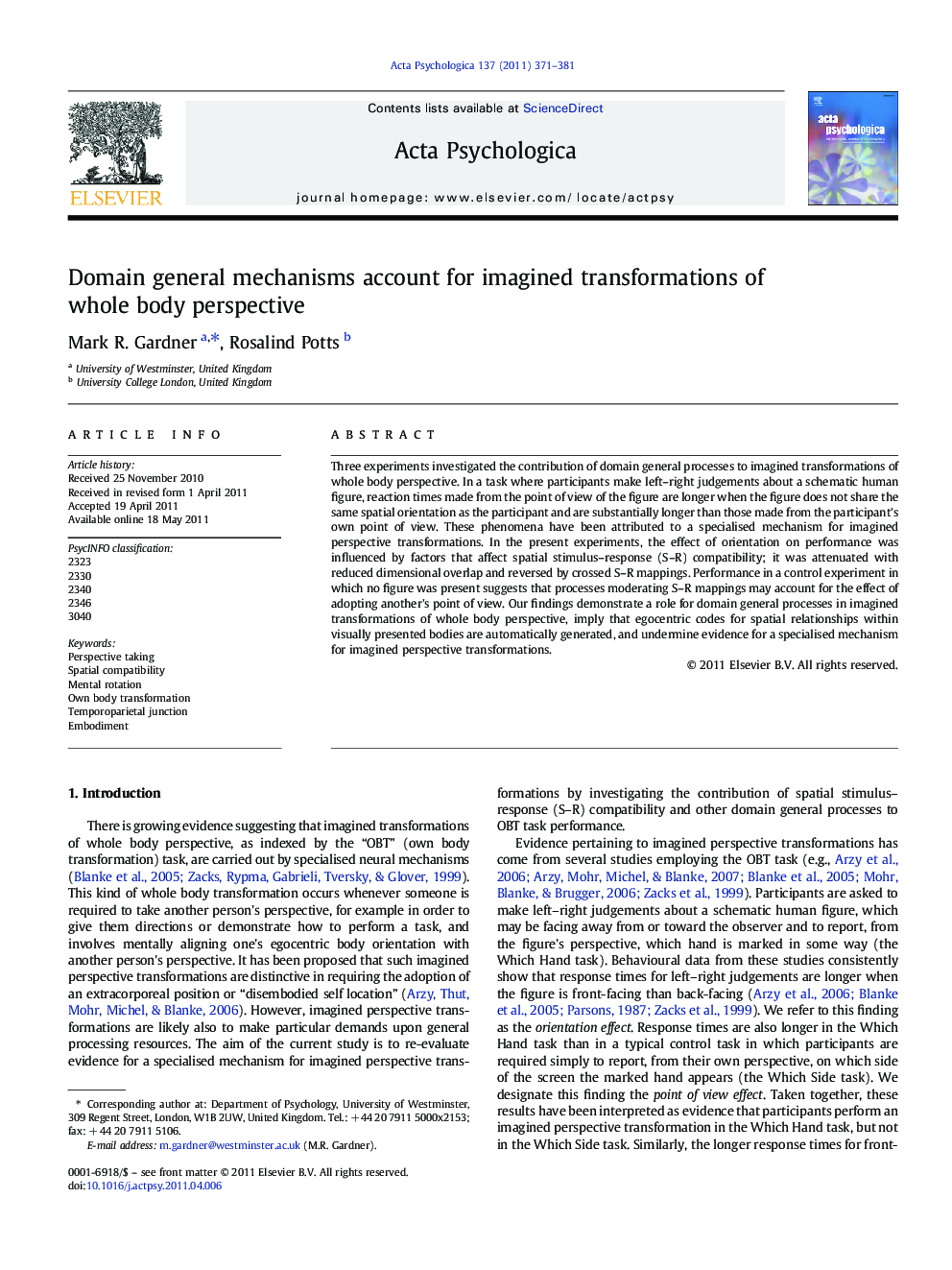| Article ID | Journal | Published Year | Pages | File Type |
|---|---|---|---|---|
| 920038 | Acta Psychologica | 2011 | 11 Pages |
Three experiments investigated the contribution of domain general processes to imagined transformations of whole body perspective. In a task where participants make left–right judgements about a schematic human figure, reaction times made from the point of view of the figure are longer when the figure does not share the same spatial orientation as the participant and are substantially longer than those made from the participant's own point of view. These phenomena have been attributed to a specialised mechanism for imagined perspective transformations. In the present experiments, the effect of orientation on performance was influenced by factors that affect spatial stimulus–response (S–R) compatibility; it was attenuated with reduced dimensional overlap and reversed by crossed S–R mappings. Performance in a control experiment in which no figure was present suggests that processes moderating S–R mappings may account for the effect of adopting another's point of view. Our findings demonstrate a role for domain general processes in imagined transformations of whole body perspective, imply that egocentric codes for spatial relationships within visually presented bodies are automatically generated, and undermine evidence for a specialised mechanism for imagined perspective transformations.
Research Highlights► Are imagined perspective transformations mediated by a specialised mental process? ► Three experiments investigated performance in the own body transformation task. ► Spatial compatibility effects were found. ► Performance also did not differ to that for a non corporeal control task. ► Domain general processes may account for imagined perspective transformations.
